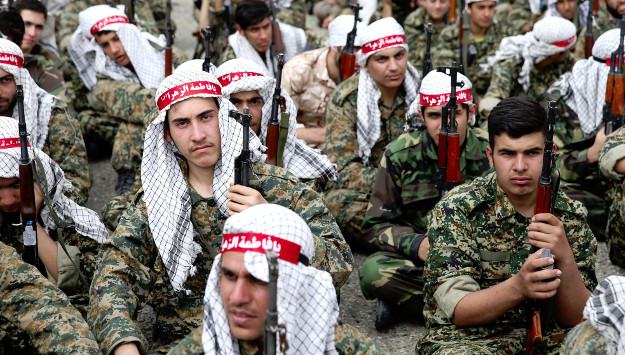Iran’s Basij forces today launched a “major military, security and cultural drill” in the southeastern province of Sistan and Baluchestan, the Iranian media reports. According to the commander of the Quds Base of the Islamic Revolution Guards Corps (I.R.G.C.) Ground Forces in southeastern zone, General Mohammad Marani, the exercise will continue until February 24 and will include 76 brigades of male forces and 22 brigades of female forces. Defense and security maneuvers, search and rescue operations and crisis management exercises will be part of the drill. A number of 23,000 members of the Basij organization are taking part in the drill, which is dubbed Ela Bayt al-Muqaddas (Toward Al-Aqsa Mosque [in Jerusalem]).
Comment: The large-scale military and cultural drill is the latest indication of the Basij’s growing power and role in the Islamic Republic. The Basij Resistance Force is a largely volunteer paramilitary organization operating under the I.R.G.C. leadership. In recent years, the force has significantly expanded and Basij members are now omnipresent in Iran’s security, political, cultural, religious and economic arenas. The Basij Force was instrumental in the bloody suppression of anti-government protests that rocked Iran after the 2009 controversial presidential elections. Its plainclothes agents and moral police regularly harass ordinary Iranians, university students, government workers, journalists, activists and politicians.
Now that the Basij Force is an integral part of the Islamic Revolution Guards Corps (I.R.G.C.), its security, political and economic role is expected to only grow further. On December 7, Iran’s Supreme Leader Ali Khamenei appointed Ghaib-Parvar as the new head of the Basij Force, and tasked him to counter “enemy infiltration” and “soft” threats against the regime. Previously, the Supreme Leader had warned that “enemies” were trying to change Iranians’ political beliefs and values and that “infiltrating into [political] currents is more dangerous than influencing individuals.”
The location of the current Basij exercises is also telling. Iran’s Baluchestan Province has a sizable, largely disgruntled and marginalized Sunni population. The province has suffered low-intensity insurgency for many years. But instead of addressing the legitimate grievances of the Sunni population in the province to prevent young Sunni Iranians from becoming radicalized, the Iranian government has only intensified the suppression of the region’s Sunni Muslims and has increased its military presence in the province.


